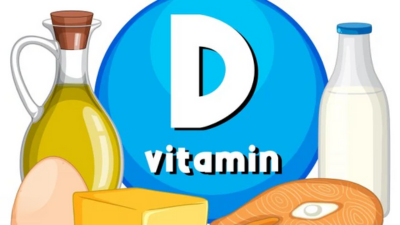If you’re over 75, here’s what you should know about vitamin D.
Vitamin D plays a crucial role in maintaining bone health, immune function, and overall well-being, especially as we age. New guidelines from the International Endocrine Society recommend that individuals aged 75 and older should consider

Vitamin D plays a crucial role in maintaining bone health, immune function, and overall well-being, especially as we age. New guidelines from the International Endocrine Society recommend that individuals aged 75 and older should consider taking vitamin D supplements.
The Importance of Vitamin D for Older Adults
As we age, the importance of vitamin D increases significantly. While younger individuals can often obtain enough vitamin D from sun exposure, this becomes more challenging for older adults. In Australia, most people under 75 can receive sufficient vitamin D from sunlight throughout the year, particularly those living in the northern regions or during summer months, where just a few minutes of sun exposure most days is adequate.
However, older adults may struggle to get enough vitamin D from sunlight. Factors such as reduced time spent outdoors, wearing more clothing, and the skin’s decreasing efficiency in synthesizing vitamin D all contribute to this challenge. Additionally, the kidneys and liver, which help convert vitamin D into its active form, also lose efficiency with age.
The Endocrine Society recommends that people over 75 aim for 800 IU (international units) of vitamin D daily through food or supplements. This dosage is higher than that recommended for younger adults, reflecting the increased needs of older bodies.
Vitamin D Deficiency in Older Adults
Despite their heightened needs, many older adults do not get enough vitamin D. Studies show that one in five older Australians are vitamin D deficient, and in higher-latitude areas like the United Kingdom, nearly half of older adults fail to reach adequate levels. Contributing factors include lifestyle choices, such as spending less time outdoors and insufficient dietary intake.
While certain foods like oily fish, eggs, and some mushrooms are good sources of vitamin D, few foods contain significant amounts. In Australia, dietary vitamin D intake is typically low, as only a limited number of foods are fortified with it.
Why Vitamin D Matters
Vitamin D is essential for calcium absorption, which is vital for maintaining bone density and strength. As bones become more fragile with age, the risk of fractures and conditions like osteoporosis increases. Studies indicate that older adults hospitalized for hip fractures are 3.5 times more likely to die within a year compared to those without injuries.
In addition to supporting bone health, vitamin D may help reduce the risk of respiratory infections, which can be more severe in older populations. Emerging research also suggests potential benefits for brain health, although further investigation is needed.
According to a systematic review by the Endocrine Society, there is moderate evidence that vitamin D supplementation may lower the risk of premature death, with an estimated prevention of six deaths per 1,000 people.
Should You Get Tested?
The Endocrine Society’s guidelines suggest that routine blood tests for vitamin D levels are unnecessary for most healthy individuals over 75. Regular testing has not shown significant benefits unless the individual has specific medical conditions affecting vitamin D metabolism, such as kidney disease or certain bone disorders. Routine testing can also be costly and inconvenient.
For most people over 75, the recommended approach is to consider a daily vitamin D supplement without the need for prior testing. Additionally, incorporating fortified foods into the diet can help reduce the necessary dosage from supplements.
Even if you’re able to get a few minutes of sunlight each day, a daily vitamin D supplement is still recommended to ensure adequate levels.




